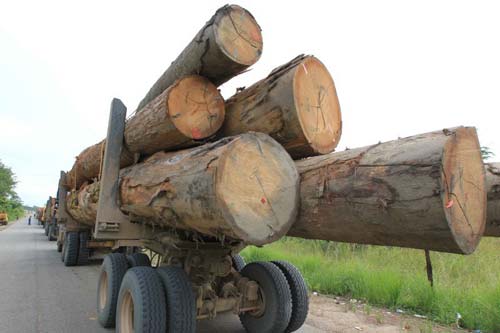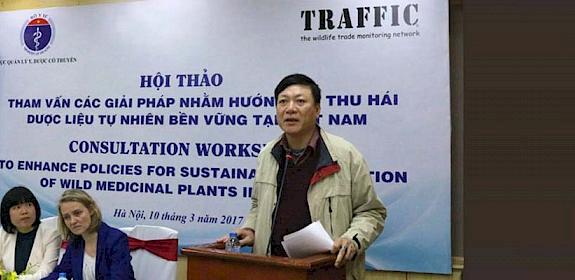What Russian timber companies need to know about new international legislation
St Petersburg, Russia, 23rd October 2013—Russian timber companies exporting to the European Union and other international markets were given a crash course in new international requirements by experts from TRAFFIC, the Global Forest Trade Network (GFTN) and WWF Russia earlier this month during the 15th St Petersburg International Forestry Forum.

Key timber markets, including the US, European Union (EU) and Australia, have all recently introduced new or amended legislation making it illegal to trade timber harvested in breach of applied legislation in the country of harvest, with serious penalties for those failing to comply.
“There is a growing demand for international timber markets to become ‘greener’, and Russian companies have to adapt themselves to new international requirements to preserve their positions in key markets,” said Chen Hin Keong, Leader of TRAFFIC’s Timber Programme, who addressed participants at the training workshop.
Timber importers to the EU are also obliged to develop and introduce due diligence systems to assess and minimize the risks of supplying illegal timber. Vital to developing fully functional systems is a comprehensive understanding of the relevant national and international timber trade regulations.
To help those affected, TRAFFIC and the GFTN are collating the relevant national legislation for selected countries into Timber Legality Frameworks.
These have already been developed for Cameroon, China, Gabon, India, Lao PDR, Malaysia, Russia and Viet Nam and are now available in Russian, thanks to WWF-Russia who have compiled a list of the 38 pieces of relevant legislation in the Guidance for Operators and Competent Authorities on Applicable legislation of the Russian Federation for complying with the EU Timber Regulation.
“The timber trade is a hugely complex arena, but timber exporters and their suppliers must be proactive to ensure compliance and not wait for ‘instructions’—the better prepared they are, the greater will be their competitive advantage,” said Hin Keong.
Participants to the training workshop included timber exporters and their suppliers, officials from the Ministry of Natural Resources and Environment, forest managers, representatives of NGOs, universities, consulting companies, Forest Stewardship Council (FSC) and the World Bank.
“It is vital to appreciate that under the new international timber regulations, not only are loggers responsible for the legality of their products, but also their clients—timber importers into the EU, US and Australia,” said Elena Kulikova, Head of WWF-Russia’s Forest Programme.
TRAFFIC and WWF are organizing additional legality training workshops in China, Indonesia and Viet Nam. They are aimed at helping companies gain confidence in supporting the legal requirements for exports and to help guard against importing illegal timber.




